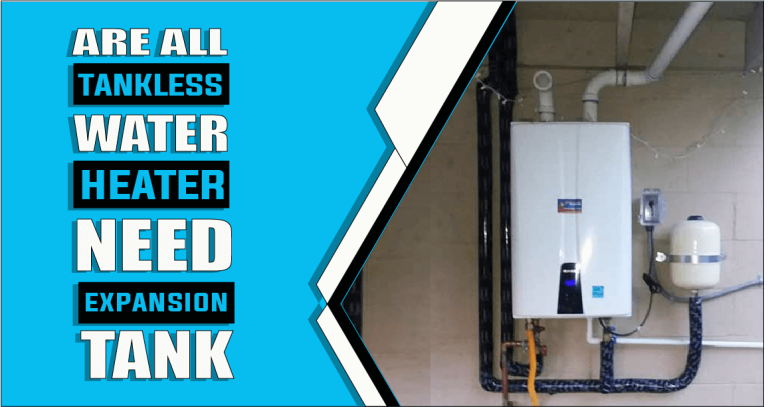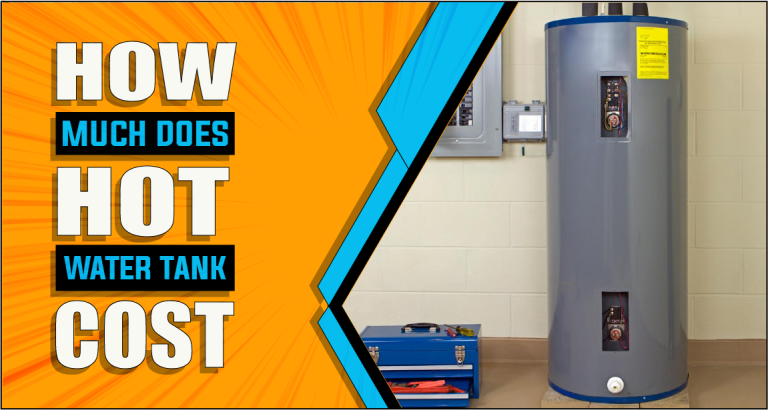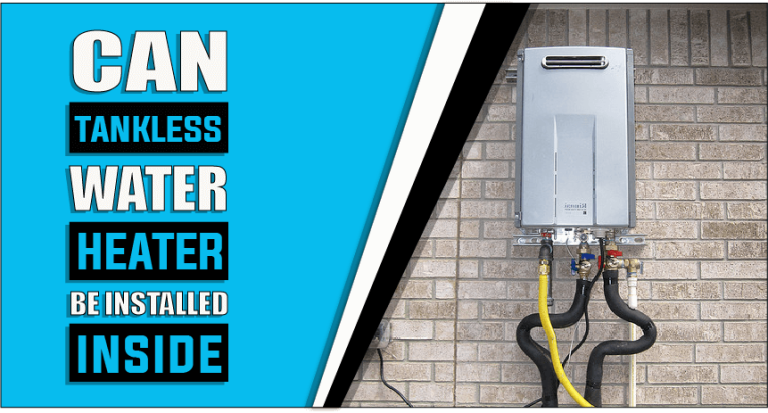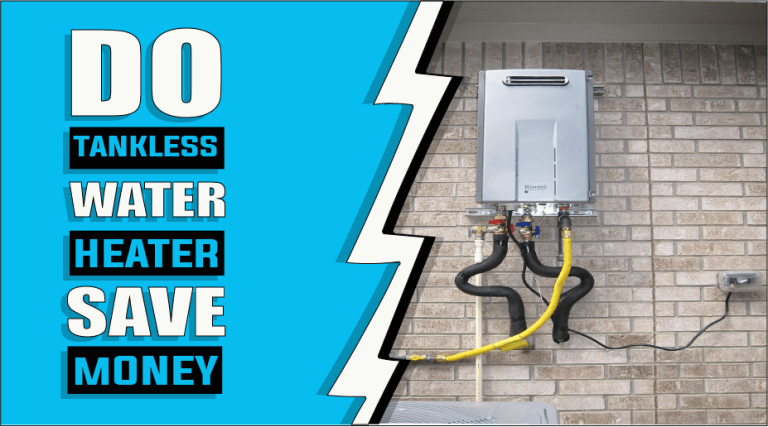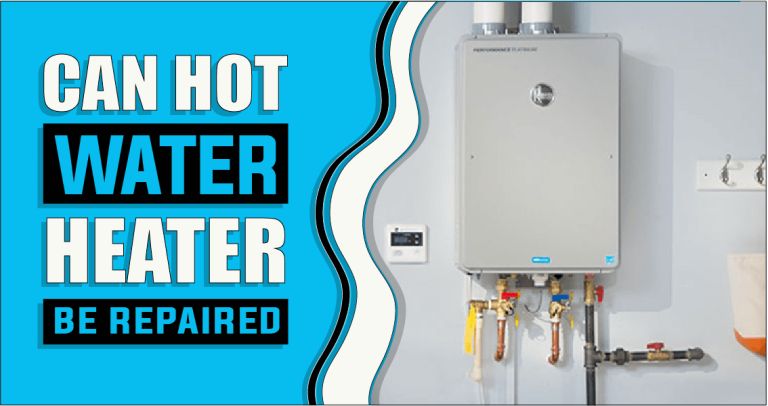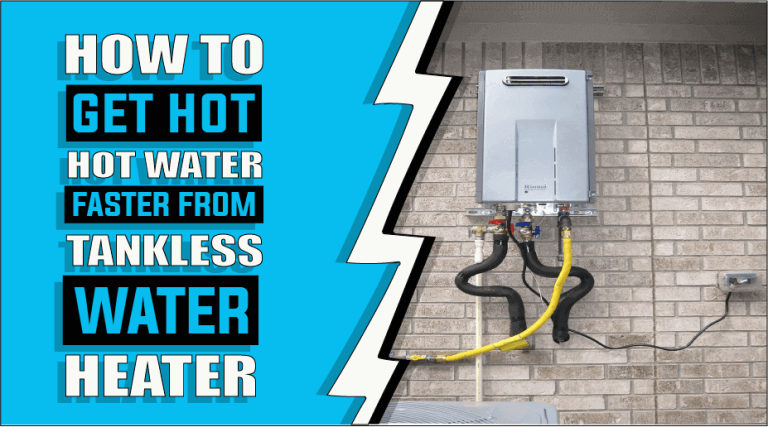What Tankless Water Heater Should I Buy | A Comprehensive Buyer’s Guide
When selecting a tankless water heater, the choices can be overwhelming. The decision to transition from a traditional water heater with a tank to a tankless system is a significant one, as it can significantly impact your home’s energy efficiency, utility bills, and overall comfort.“What tankless water heater should I buy?” is a question that often arises for homeowners seeking to make this upgrade. In this quest for the ideal tankless water heater, various factors must be considered, such as the size of your household, your hot water usage patterns, the energy sources available, and your budget. This article will guide you through the key considerations and factors to weigh when making this vital decision, helping you make an informed choice that aligns with your needs and preferences. Whether you’re looking for a compact, electric unit for a small apartment or a powerful, gas-powered system for a large family home, we’ll explore the best options that suit your requirements. Without wasting any time, let’s get started!
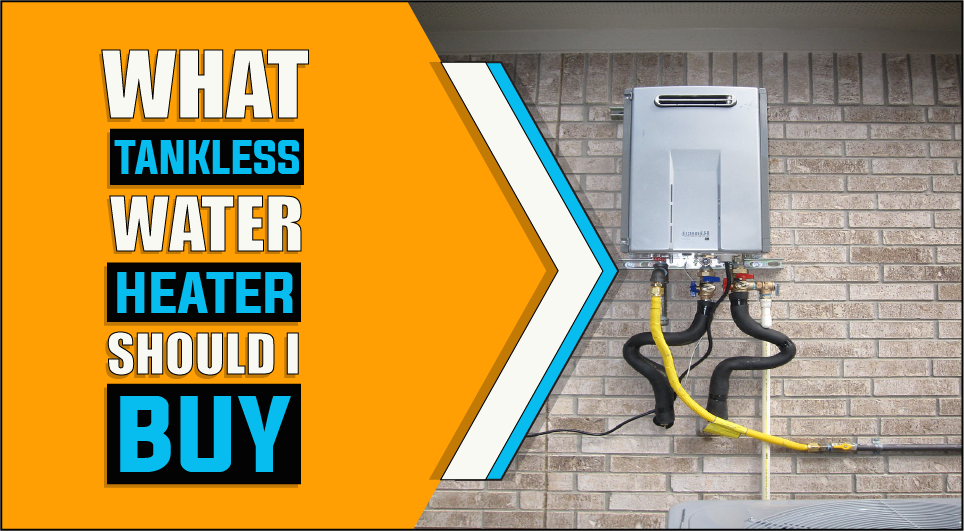
Factors you need to look for while buying the best tankless water heater
When looking for the best tankless water heater, there are several factors to consider to ensure you get the right one for your needs:
1: Brand Reputation and Warranty –
Brand reputation and warranty are crucial factors to consider when purchasing, especially regarding appliances like tankless water heaters. Let’s look at why the warranty of the product and the reputation of brands matter:
- Quality Assurance: Established brands with a good reputation have likely earned it by consistently delivering high-quality products. Opting for a reputable brand increases the chances of selecting a reliable tankless water heater that will perform well and last long.
- Proven Track Record: Brands with a strong reputation often have a long-standing presence in the market. Their longevity indicates that they have successfully met customer needs and preferences.
- Warranty Coverage: A solid warranty is essential when purchasing a tankless water heater. Reputable brands typically offer comprehensive warranties, providing peace of mind and protection against potential defects or issues with the product. Review the warranty terms, including coverage duration and any conditions or limitations.
2: Longevity and durability –
Longevity and durability are essential when investing in any product, including appliances like tankless water heaters. Here’s why longevity and durability matter:
- Cost-effectiveness: A tankless water heater with a longer lifespan can be more cost-effective in the long run. Investing in a durable unit means you won’t have to replace it as frequently, saving you money on replacement and installation costs.
- Reduced Maintenance: High-quality, durable water heaters require less maintenance than lower-quality models. This means fewer interruptions for repairs and maintenance visits, resulting in minimal inconvenience and hassle.
- Peace of Mind: Knowing that your tankless water heater is built to last provides peace of mind. You can trust that it will continue to meet your hot water needs reliably, giving you one less thing to worry about.
It’s worth investing in a high-quality unit backed by a reputable brand to ensure long-term satisfaction and value for your money.
3: Energy Efficient –
Tankless water heaters are known for their energy efficiency, making them an appealing choice for homeowners looking to reduce their energy consumption and utility bills. According to the U.S. Department of Energy, tankless water heaters can be 24% to 34% more energy efficient than conventional storage tank water heaters, especially for households that use 41 gallons or less of hot water daily.
The key to this energy efficiency lies in their on-demand heating mechanism. Unlike traditional water heaters that constantly heat and store a large volume of water, tankless models only heat water when needed. This eliminates standby heat loss, where energy is wasted in maintaining the temperature of water sitting in a storage tank.
Although tankless water heaters may have a higher upfront cost than storage tank models, their efficiency can lead to long-term savings. Their compact design and longer lifespan add to their value and appeal.
4: On-demand hot water –
On-demand hot water, also known as tankless or demand-type water heaters, is a convenient and efficient solution for providing hot water only when needed. Unlike traditional storage tank water heaters that continuously heat and store hot water, on-demand systems heat water directly as it flows through the unit. Here are some key points to consider about on-demand hot water:
- Energy Efficiency: On-demand water heaters are more energy-efficient than conventional tank heaters. They only heat water when there is a demand, eliminating standby heat loss in storage tanks.
- Endless Supply: With an on-demand system, you’ll have a continuous hot water supply. There’s no need to worry about running out of hot water during long showers or when multiple appliances are used simultaneously.
- Space Saving: Tankless water heaters are compact and can be mounted on walls or installed in smaller spaces, freeing up valuable floor space in your home.
- Variety of Fuel Options: On-demand water heaters can be powered by electricity, natural gas, or propane, providing flexibility based on your available energy sources and preferences.
5: Hot Water Supply –
Having a reliable and efficient hot water supply is essential for any household. Hot water is crucial in our daily lives, whether for bathing, washing dishes, or laundry. Various systems and options are available to ensure a consistent hot water supply.
One common method is domestic hot water systems that utilize a centralized storage tank separate from water used for heating. These systems deliver hot water on demand, providing a steady hot water supply throughout the house. Another option is tankless water heaters, which serve as compact and energy-efficient solutions for hot water supply.
Hot water systems can also be integrated with boilers for comfort heating, allowing hot water to provide warmth. In addition, geothermal systems can be utilized to generate power through hot water systems.
With the right hot water supply system in place, you can enjoy the convenience of readily available hot water while minimizing energy consumption and maximizing efficiency.
6: Reliable performance –
Reliable performance is vital when purchasing any product, including appliances like tankless water heaters. Here’s why reliable performance matters:
- Consistent Hot Water: A reliable tankless water heater ensures a consistent hot water supply whenever needed. It eliminates the inconvenience of fluctuating water temperatures and provides a steady flow of hot water for your daily needs.
- Durability: A water heater with excellent performance is built to last. It can withstand regular use and varying water conditions and provide consistent performance over time. This ensures you won’t have to deal with frequent repairs or replacements.
- User Satisfaction: Reliable performance leads to higher customer satisfaction. Knowing that your tankless water heater consistently delivers hot water without issues gives you peace of mind and enhances your overall user experience.
How Often Will The Water Heater Be Used
The frequency at which a water heater is used can vary depending on several aspects. One of the main points is the demand for hot water in a household. The more hot water is needed for activities like showering, washing dishes, or doing laundry, the more frequently the water heater will be used.
On average, a gas water heater cycles every time a few gallons of hot water are used. However, if the heater is cycling dramatically more than that, it could indicate a hot water leak and may require attention.
Regarding maintenance, it is generally recommended to flush a water heater about once a year. This helps remove sediment buildup and ensures the efficient operation of the heater.
The lifespan of a water heater can vary based on factors such as usage, maintenance, and the type of heater. Traditional tank water heaters last around 6 to 15 years, while tankless water heaters can last for more than 20 years. However, with proper maintenance, the lifespan of a water heater can be extended.
Ultimately, how often a water heater is used depends on the household’s hot water demand. Regular maintenance and attention to any issues can help ensure the longevity and efficient operation of the water heater.
How to save money on your purchase of tankless water heaters?
When saving money and choosing the right tankless water heater, there are a few key points to consider. The first step is determining your hot water demand based on the number of fixtures and appliances using hot water in your household.
Once you know your hot water needs, choosing the right tankless water heater size is essential. Oversizing can lead to wasted energy, while undersizing may result in insufficient hot water supply (PlumbingSupply.com).
Regarding fuel type, gas-powered tankless water heaters are often recommended for their efficiency and cost-effectiveness. They tend to have lower operating costs than electric models, especially for households with higher hot water demand.
To save even more money, look for energy-efficient models that are ENERGY STAR certified. These units meet strict efficiency guidelines and can help reduce energy consumption and utility bills.
Before making a final decision, it’s wise to read reviews and compare different brands and models. Websites like Build.com and WaterHeatersNow.com provide comprehensive buying guides and reviews to assist decision-making.
Conclusion:
In conclusion, choosing the right tankless water heater requires careful consideration of various factors to ensure optimal performance and cost savings. By assessing your hot water demand, selecting the appropriate size, and considering the fuel type and flow rate, you can make an informed decision that suits your needs. All in all, it is crucial to select a unit that meets the requirements of your fixtures and appliances. Additionally, opting for an ENERGY STAR-certified tankless water heater can enhance efficiency, reduce utility bills, and provide long-term savings. Investing in the right tankless water heater can provide you with a high-quality and cost-effective hot water supply for years.
Relevant Questions:
Calculating the proper size of a tankless water heater depends on your household’s hot water demand. Start by determining the maximum number of fixtures that will be used simultaneously. Each fixture has an associated flow rate, measured in gallons per minute (GPM). Add up the flow rates of all fixtures to find the total GPM required. Based on this calculation, look for a tankless water heater that can provide the desired flow rate. Oversizing can lead to wasted energy, while undersizing may result in insufficient hot water supply.
Gas-powered tankless water heaters are generally considered more cost-effective due to their higher energy efficiency and lower operating costs. Gas units can handle higher hot water demand and provide hot water faster than electric models. However, electric tankless water heaters may suit smaller households with lower hot water demand. Electric models also tend to have more straightforward installation requirements and lower upfront costs. Consider your specific hot water needs, utility rates, and availability of gas or electricity to determine which option is more cost-effective for your situation.
The flow rate is critical when choosing a tankless water heater. It refers to the rate water flows through the unit, measured in gallons per minute (GPM). Different fixtures and appliances have specific requirements. For example, a shower typically requires around 2.5 to 3 GPM, while a kitchen faucet may require 1.5 GPM. Selecting a tankless water heater that can meet the total flow rate required by all fixtures and appliances that may be used simultaneously is crucial. If this rate is too low, you may experience reduced water pressure, insufficient hot water supply, or even unit malfunctions.
Several resources are available to find information on tankless water heaters. Start by visiting manufacturer websites to find detailed specifications and product descriptions. Online retailers like Amazon often have customer reviews that can provide insights into real-world experiences with specific models—consumer advocacy websites like Consumer Reports and Angie’s List offer independent reviews and ratings. Plumbing and home improvement forums can also be valuable sources of user experiences and recommendations. Finally, consider consulting with plumbing or heating specialists who can offer expert advice and guide you in selecting the right tankless water heater for your particular needs.
Ella John is passionate about helping her readers make the best choice when purchasing a heater. She understands that selecting a heater can be difficult and strives to provide information to help make the decision easier. Ella’s website, Heatersinfo.com, provides valuable insight into heating trends and types of heaters and tips on how to care for them. She also advises selecting the right heater based on individual needs and preferences. Her expertise in electronics makes her an excellent source of knowledge, and she is confident that anyone who visits her website will find the perfect heater information for their needs. Ella’s dedication to helping others make educated decisions about buying the right heater is unparalleled, and she hopes to continue offering her expertise for many years. With Ella’s help, finding the perfect heater can be a breeze!

